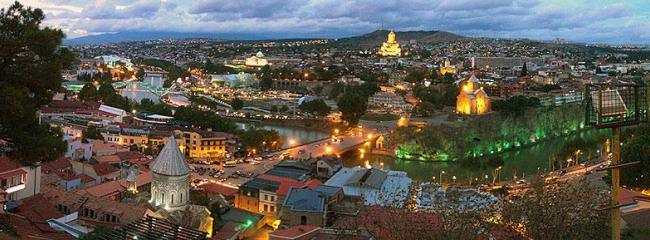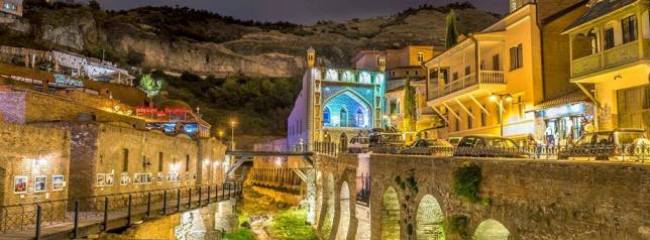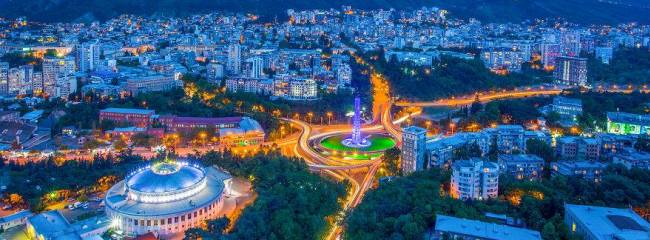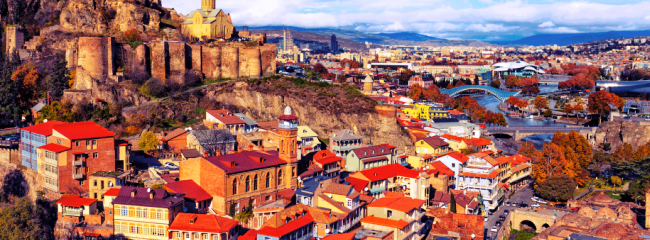History of the University
The first-ever national university in the Caucasus was opened in 1918 laying the foundation for a European-style post-secondary school in Georgia, based on Georgian educational traditions.
The idea of foundation of the university first emerged as early as the first half of the 19th century amid the intensification of the struggle for liberation from the Russian Empire.
A new generation led by the outstanding Georgian public figure Ilia Chavchavadze, with whom a new stage of spiritual revival in the history of our country is connected, appeared on the scene in the sixties of the 19th century. Efforts for establishing the university became especially vigorous during those years.
Real possibilities of establishing an institution of higher learning opened up after the Nobiliary Manorial Estate Bank was founded in Tbilisi. It was the only bank throughout the Russian empire, which spent its incomes to promote the cultural-educational and economic interests of the nation.
From the beginning of the 20th century Ivane Javakhishvili, who undertook his studies in St. Petersburg where he became an assistant professor, started to organize the foundation of the Georgian University. From the very first days of the February 1917 revolution, Ivane Javakhishvili, at that time in St. Petersburg, initiated active preparations for starting an institution of higher education.
The first gathering of the founders of the University Society was held at the apartment of Petre Melikishvili in Tbilisi on May 12. The gathering was chaired by Ekvtime Takaishvili. This marked the beginning of the Georgian Free University Society, which later played a huge role in the foundation of the University.
In autumn 1917 the founders of the University intensified their efforts to open a higher educational institution. It was decided to establish only one faculty initially – the faculty of philosophy -- which would have united the fields of the humanities as well as natural science and mathematics. In late December the Georgian press already reported first enrolment of students in the Georgian University.
Thus, the first-ever national University in the Caucasus was opened on January 26, 1918, the day of the commemoration of King David the Builder (new style February 8).
Upon the nomination of Ivane Javakhishvili, the Council of Professors elected Petre Melikishvili the first rector of the university. Ivane Javakhishvili took charge of the Faculty of Philosophy.
The following persons delivered lectures at the newly established university: Ivane Javakhishvili, Iustine Abuladze, Giorgi Akhvlediani, Philipe Gogichaishvili, Ekvtime Takaishvili, Korneli Kekelidze, Shalva Nutsubidze, Elisabed Bagrationi-Orbeliani, Dimitri Uznadze, Vanda Gambashidze, Ilia Kipshidze, Ioseb Kipshidze, Akaki Shanidze, Andria Benashvili, Andria Razmadze, Ivane Beritashvili, and Grigol Tsereteli.
In 1989 Tbilisi State University was named after its founder, Ivane Javakhishvili.
Today the Ivane Javakhishvili Tbilisi State University is one of the top scientific research institutions in Georgia. It implements about 200 local and international scientific grant programs annually.
Tbilisi State University is one of the largest higher educational institutions by its scales. Today about 22 thousand students are undergoing studies at its seven faculties.
Along with Bachelor’s, Master’s and Doctoral degree programs, Tbilisi State University also offers higher professional education, as well as short and long term certificate programs. Through close cooperation with foreign universities, Georgian students have opportunities to participate in exchange and joint international educational programs and obtain double academic degrees.
Tbilisi State University is an active member of several leading international education networks and is proud of its alumni who include prominent professors, scientists and other graduates who have successfully integrated into the European community and gained worldwide recognition.
TSU offers a wide variety of degree programs at the undergraduate, graduate and doctoral levels, as well as short courses offered in English which attract students from all over the world. The internalization of TSU is fast- paced and it aims at creating a multicultural environment that will enhance teaching and research opportunities.TSU promotes an equal opportunities policy for accessing education and believes in engaging and valuing all students and staff.

The Faculty of Humanities
The Faculty of Humanities of Ivane Javakhishvili Tbilisi State University is the successor of the Faculty of Philosophy at the first Georgian University established in 1918. The faculty was supervised by several famous Georgian scholars educated in Europe who managed to introduce and adjust the western educational standards to Georgian ways of teaching. The faculty never failed to meet the requirements of the epoch, shaping the nation’s consciousness and promoting the growth of intellectual and scientific potential in Georgia. Throughout its nearly century-old history, the faculty changed gradually and refined its structure. Today it is one of the most important, dynamic and competitive faculties in the University, and demonstrates significant academic potential.
The Mission of the Faculty
The key task of the faculty is to promote the introduction of modern research and methodologies, the development of academic work and research-based educational activities in the fields of the Humanities.








